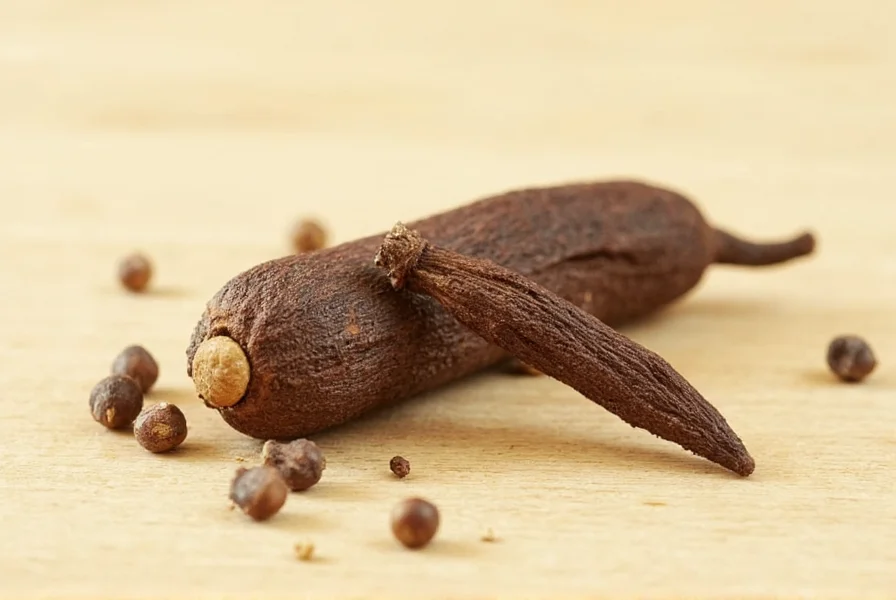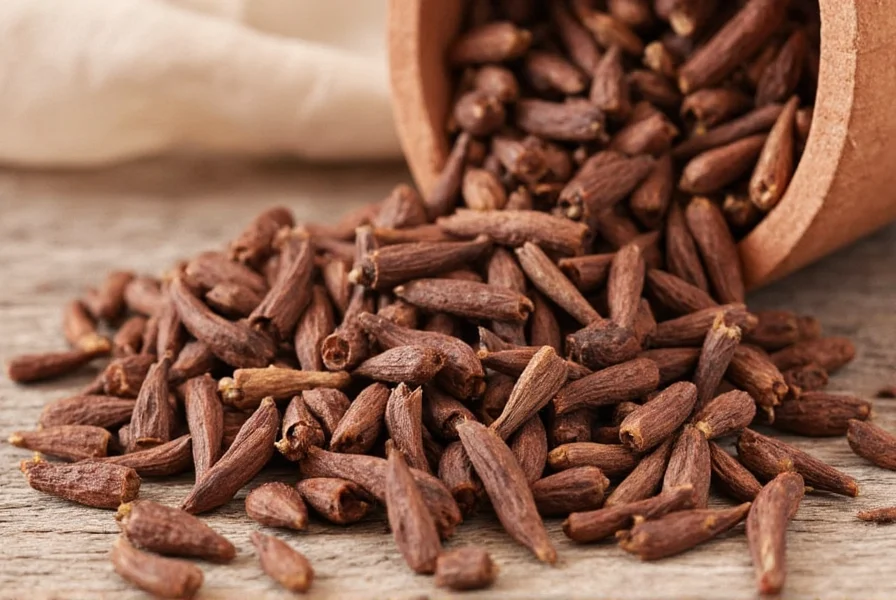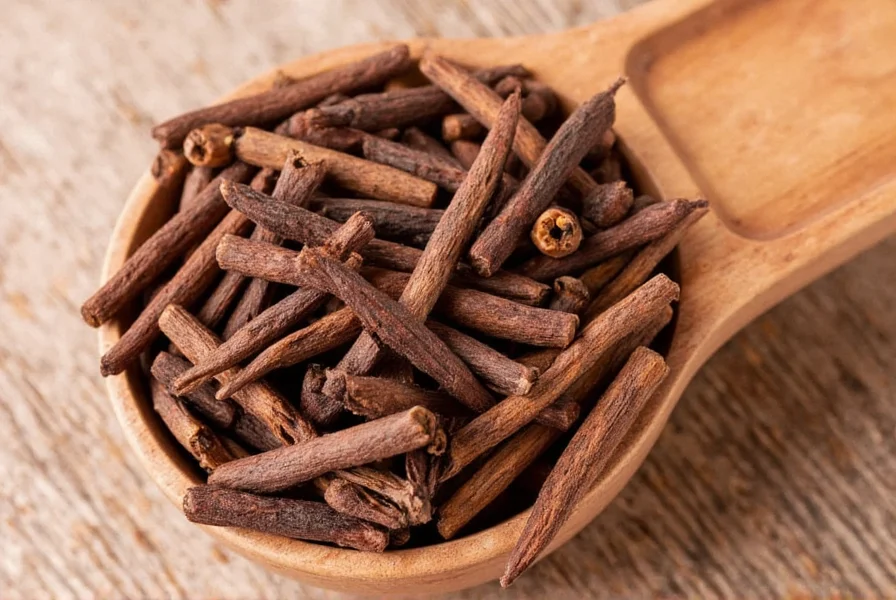These small, nail-shaped spice buds deliver intense flavor and aroma that surpasses their ground counterpart in freshness and complexity. Understanding the unique properties of whole cloves helps home cooks and health-conscious consumers maximize their culinary and potential wellness benefits.
What Exactly Are Whole Cloves?
Whole cloves represent the immature flower buds of the clove tree (Syzygium aromaticum), native to Indonesia's Maluku Islands. Harvesters pick these buds when they transition from green to pink but before they open into flowers. The buds then undergo sun-drying until they turn their characteristic dark brown color with a firm, hard texture.
Unlike ground cloves, whole cloves maintain their essential oils and flavor compounds much longer due to reduced surface area exposure. This preservation makes them superior for long-term storage and specific cooking techniques where controlled flavor release matters.

Key Characteristics of Whole Cloves
Whole cloves possess several distinctive features that differentiate them from other spices:
- Appearance: Small (1-2 cm), tapered buds resembling nails with a bulbous head
- Color: Deep reddish-brown when properly dried
- Aroma: Intensely fragrant with warm, sweet, and slightly peppery notes
- Flavor profile: Strong, pungent, with eugenol providing the characteristic warmth
- Texture: Hard and brittle when fresh, becoming more brittle with age
Whole Cloves vs. Ground Cloves: Critical Differences
| Characteristic | Whole Cloves | Ground Cloves |
|---|---|---|
| Shelf life | 2-3 years when properly stored | 6-12 months before significant flavor loss |
| Flavor intensity | More complex, nuanced flavor profile | Milder, less complex flavor |
| Culinary applications | Ideal for slow cooking, stews, pickling, and infusions | Better for baking and quick-cooking applications |
| Essential oil content | Higher concentration (15-20%) | Rapidly decreases after grinding |
| Usage technique | Often removed before serving | Blended throughout dish |
Culinary Applications of Whole Cloves
Chefs and home cooks value whole cloves for cooking because they allow precise flavor control. The most common culinary uses include:
- Infusions: Steeping in liquids like mulled wine, chai tea, or broth where they impart flavor without creating sediment
- Slow-cooked dishes: Adding to braises, stews, and curries where prolonged cooking extracts maximum flavor
- Pickling: Essential component in many pickling spice blends
- Rice dishes: Whole cloves flavor pilafs and biryanis across Middle Eastern and South Asian cuisines
- Baked goods: Studding hams or adding to holiday recipes like gingerbread
When using whole cloves in recipes, remember they're potent—typically 3-4 whole cloves equal one-eighth teaspoon of ground cloves. Always remove whole cloves before serving to prevent biting into the intensely flavored buds.
Health Properties of Whole Cloves
Traditional medicine systems have utilized whole cloves for toothache relief and other wellness purposes for centuries. Modern research supports several potential benefits:
- Dental health: Eugenol, the main compound in cloves, has analgesic and antiseptic properties that may temporarily relieve tooth pain
- Antioxidant capacity: Cloves rank among the highest antioxidant-rich foods according to ORAC values
- Digestive support: Traditional use for easing nausea and improving digestion
- Anti-inflammatory effects: Some studies suggest potential benefits for inflammation reduction
While promising, most health benefits require more rigorous scientific validation. Never substitute whole cloves medicinal uses for professional medical treatment, especially for serious conditions.

Proper Storage Techniques for Maximum Freshness
To preserve the volatile oils that give whole cloves their distinctive flavor, follow these storage guidelines:
- Store in airtight glass containers away from light and heat
- Keep away from strong-smelling foods as cloves readily absorb odors
- Store in a cool, dark cupboard rather than near the stove or oven
- Check for freshness by squeezing a clove—it should feel hard and release aromatic oils
- For extended storage, keep in the freezer where they maintain quality for up to 3 years
Properly stored whole cloves last significantly longer than ground versions. Test older cloves by placing one in water; fresh cloves sink while stale ones float due to lost essential oils.
Practical Tips for Using Whole Cloves
Maximize your experience with whole cloves in cooking with these professional techniques:
- Toast before use: Briefly dry-toast whole cloves in a pan to intensify their flavor before grinding or adding to dishes
- Create a bouquet garni: Tie whole cloves with other spices in cheesecloth for easy removal after cooking
- Stud citrus: Push whole cloves into oranges or apples for natural air fresheners or holiday decorations
- Grind as needed: Use a dedicated spice grinder or mortar and pestle for fresh ground cloves when required
- Control potency: Remove whole cloves earlier for milder flavor, leave in longer for stronger taste
Safety Considerations
While generally recognized as safe for culinary use, consider these precautions with whole cloves usage:
- Never swallow whole cloves as they can cause digestive discomfort
- Use caution with clove oil which is highly concentrated—always dilute before topical application
- Consult a healthcare provider before using cloves medicinally if pregnant, nursing, or taking blood thinners
- Keep away from pets as eugenol can be toxic to animals
Conclusion
Whole cloves offer distinctive culinary advantages over their ground counterparts, providing superior flavor retention, controlled infusion capabilities, and extended shelf life. Understanding how to properly select, store, and use these potent spice buds enhances both cooking experiences and potential wellness applications. Whether crafting complex curries, soothing holiday beverages, or exploring traditional remedies, whole cloves remain an indispensable component of global spice traditions.
Frequently Asked Questions
What's the difference between whole cloves and ground cloves?
Whole cloves maintain their essential oils and flavor compounds much longer than ground cloves. Whole cloves have a shelf life of 2-3 years when properly stored compared to 6-12 months for ground cloves. Whole cloves provide more complex flavor in slow-cooked dishes and infusions, while ground cloves work better in baking where immediate flavor dispersion is needed.
Can I substitute ground cloves for whole cloves in recipes?
Yes, but with caution. Generally, 3-4 whole cloves equal approximately 1/8 teaspoon of ground cloves. Remember that ground cloves deliver flavor immediately throughout a dish, while whole cloves release flavor gradually. In recipes where whole cloves are meant to be removed before serving, substituting ground cloves will change both flavor distribution and texture.
How can I tell if my whole cloves are still fresh?
Fresh whole cloves should feel hard when squeezed and release aromatic oils. Perform the water test: place a clove in water—fresh cloves sink while stale ones float due to lost essential oils. Also check for strong, pleasant aroma; diminished fragrance indicates age. Properly stored whole cloves maintain quality for 2-3 years.
Are whole cloves safe to eat directly?
No, you should not swallow whole cloves. While safe for culinary use when properly incorporated into dishes and then removed, whole cloves are extremely potent and hard. Biting directly into a whole clove can cause mouth irritation, and swallowing them whole may lead to digestive discomfort or even intestinal blockage due to their hard texture.
What are the best ways to use whole cloves in cooking?
Whole cloves excel in slow-cooked dishes like stews, braises, and curries where prolonged cooking extracts maximum flavor. They're ideal for infusions such as mulled wine or chai tea, pickling spice blends, and rice dishes like biryani. Many chefs toast whole cloves briefly before use to intensify their flavor. Remember to remove whole cloves before serving as they're too hard to eat directly.











 浙公网安备
33010002000092号
浙公网安备
33010002000092号 浙B2-20120091-4
浙B2-20120091-4